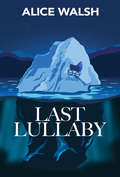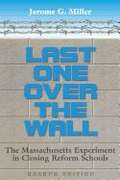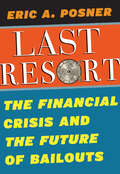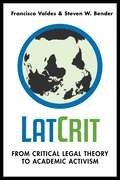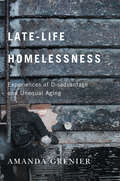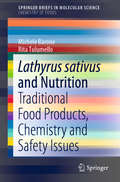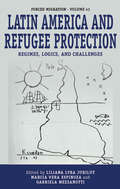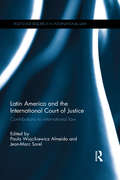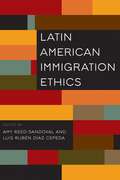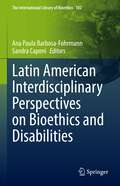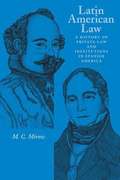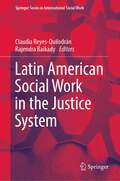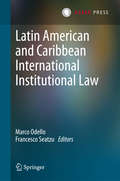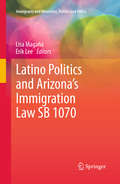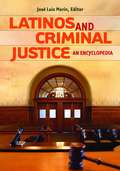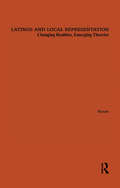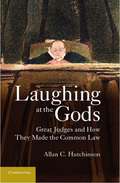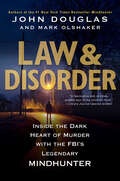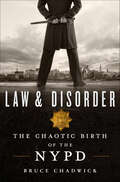- Table View
- List View
Last Friends: From the Orange Prize shortlisted author
by Jane Gardam'It's a cliche to compare novelists to Jane Austen, but in the case of Jane Gardam it happens to be true. Her diamond-like prose, her understanding of the human heart, her formal inventiveness and her sense of what it is to be alive - young, old, lonely, in love - never fades' Amanda Craig'Her work, like Sylvia Townsend Warner's, has that appealing combination of elegance, erudition and flinty wit' Patrick Gale'Sharp, humane, generous and wonderfully funny, she is one of our very finest writers' Hilary MantelShortlisted for the 2014 Folio Prize.Old Filth and The Man in the Wooden Hat told with bristling tenderness and black humour the stories of that Titan of the Hong Kong law courts, Old Filth QC, and his clever, misunderstood wife Betty. Last Friends, the final volume of this trilogy, picks up with Terence Veneering, Filth's great rival in work and - though it was never spoken of - in love. Veneering's were not the usual beginnings of an establishment silk: the son of a Russian acrobat marooned in northeast England and a devoted local girl, he escapes the war to emerge in the Far East as a man of panache, success and fame. But, always, at the stuffy English Bar he is treated with suspicion: where did this blond, louche, brilliant Slav come from? Veneering, Filth and their friends tell a tale of love, friendship, grace, the bittersweet experiences of a now-forgotten Empire and the disappointments and consolations of age.
Last Friends: From the Orange Prize shortlisted author (Old Filth Trilogy Ser. #3)
by Jane Gardam'It's a cliche to compare novelists to Jane Austen, but in the case of Jane Gardam it happens to be true. Her diamond-like prose, her understanding of the human heart, her formal inventiveness and her sense of what it is to be alive - young, old, lonely, in love - never fades' Amanda Craig'Her work, like Sylvia Townsend Warner's, has that appealing combination of elegance, erudition and flinty wit' Patrick Gale'Sharp, humane, generous and wonderfully funny, she is one of our very finest writers' Hilary MantelShortlisted for the 2014 Folio Prize.Old Filth and The Man in the Wooden Hat told with bristling tenderness and black humour the stories of that Titan of the Hong Kong law courts, Old Filth QC, and his clever, misunderstood wife Betty. Last Friends, the final volume of this trilogy, picks up with Terence Veneering, Filth's great rival in work and - though it was never spoken of - in love. Veneering's were not the usual beginnings of an establishment silk: the son of a Russian acrobat marooned in northeast England and a devoted local girl, he escapes the war to emerge in the Far East as a man of panache, success and fame. But, always, at the stuffy English Bar he is treated with suspicion: where did this blond, louche, brilliant Slav come from? Veneering, Filth and their friends tell a tale of love, friendship, grace, the bittersweet experiences of a now-forgotten Empire and the disappointments and consolations of age.
Last Lullaby
by Alice WalshA debut mystery of small-town intrigue from the award-winning author. &“Gripping . . . a satisfying and nicely-paced page turner.&” —The Telegram Set in the fictional town of Paddy&’s Arm, Newfoundland, Alice Walsh&’s debut mystery novel is at once harrowing and homey, equal parts police procedural and diner gossip. When Claire and Bram&’s only child dies suddenly, it at first appears to be a case of crib death. But when the real cause of death indicates homicide and Claire is arrested as the number-one suspect, her friend, lawyer Lauren LaVallee, promises she&’ll do everything she can to prove Claire&’s innocence. As Lauren combs Paddy&’s Arm for suspects, amid department politics and small-town talk, leads abound. Why are professors Frances and Annabelle being so secretive about their adopted daughter? What&’s behind a troubled student&’s sudden disappearance? And who is the mysterious platinum blonde observed at the scene of the crime? Meanwhile, Lauren&’s own secret—a case that almost cost her her career back in Montreal—and the sudden return of an ex-lover who wants back in her life, threaten to overwhelm the investigation altogether. &“Alice Walsh manages to throw in a variety of plot-points that are rather unique to the genre and which don&’t normally tend to appear in mystery/thrillers; adding another layer to the story, making it stand out from its peers and adding a touch more gossipy intrigue and excitement.&” —Reminders of the Changing Time
Last Mission to Tokyo: The Extraordinary Story of the Doolittle Raiders and Their Final Fight for Justice
by Michel ParadisA thrilling narrative that introduces a key but underreported moment in World War II: The Doolitte Raids and the international war crimes trial in 1945 that defined Japanese-American relations and changed legal history.In 1942, freshly humiliated from the attack on Pearl Harbor, the United States was in search of a plan. President Roosevelt, determined to show the world that our nation would not be intimidated or defeated by enemy powers, he demanded recommendations for a show of strength. Jimmy Doolittle, a stunt pilot with a doctorate from MIT, came forward, and led eighty young men, gathered together from the far-flung corners of Depression-era America, on a seemingly impossible mission across the Pacific. Sixteen planes in all, they only had enough fuel for a one-way trip. Together, the Raiders, as they were called, did what no one had successfully done for more than a thousand years. They struck the mainland of Japan and permanently turned the tide of the war in the Pacific. Almost immediately, The Doolittle Raid captured the public imagination, and has remained a seminal moment in World War II history, but the heroism and bravery of the mission is only half the story. In Last Mission to Tokyo, Michel Paradis reveals the dramatic aftermath of the mission, which involved two lost crews captured, tried, and tortured at the hands of the Japanese, a dramatic rescue of the survivors in the last weeks of World War II, and an international manhunt and trial led by two dynamic and opposing young lawyers—in which both the United States and Japan accused the other of war crimes—that would change the face of our legal and military history. Perfect for fans of Lucky 666 and Nuremberg: Infamy on Trial, Last Mission to Tokyo is a thrilling war story-meets-courtroom-drama that explores a key moment in World War II.
Last One Over the Wall: The Massachusetts Experiment in Closing Reform Schools
by Jerome G. MillerLast One over the Wall is an analytical and autobiographical account of Jerome G. Miller's tenure as head of the Massachusetts juvenile justice system, during which he undertook one of the most daring and drastic steps in recent juvenile justice history -- he closed reformatories and returned offenders to community supervision and treatment by private schools and youth agencies. Filled with insights into juvenile and adult behavior in prison and outside, Miller's account provides a rare opportunity to view our juvenile justice system as a whole, including all the politics, economics, and social biases that come with it. In a new preface for this edition, the author reflects on his decision of seven years ago and the lessons learned from it.
Last Resort: The Financial Crisis and the Future of Bailouts
by Eric A. PosnerThe bailouts during the recent financial crisis enraged the public. They felt unfair—and counterproductive: people who take risks must be allowed to fail. If we reward firms that make irresponsible investments, costing taxpayers billions of dollars, aren’t we encouraging them to continue to act irresponsibly, setting the stage for future crises? And beyond the ethics of it was the question of whether the government even had the authority to bail out failing firms like Bear Stearns and AIG. The answer, according to Eric A. Posner, is no. The federal government freely and frequently violated the law with the bailouts—but it did so in the public interest. An understandable lack of sympathy toward Wall Street has obscured the fact that bailouts have happened throughout economic history and are unavoidable in any modern, market-based economy. And they’re actually good. Contrary to popular belief, the financial system cannot operate properly unless the government stands ready to bail out banks and other firms. During the recent crisis, Posner agues, the law didn’t give federal agencies sufficient power to rescue the financial system. The legal constraints were damaging, but harm was limited because the agencies—with a few exceptions—violated or improvised elaborate evasions of the law. Yet the agencies also abused their power. If illegal actions were what it took to advance the public interest, Posner argues, we ought to change the law, but we need to do so in a way that also prevents agencies from misusing their authority. In the aftermath of the crisis, confusion about what agencies did do, should have done, and were allowed to do, has prevented a clear and realistic assessment and may hamper our response to future crises. Taking up the common objections raised by both right and left, Posner argues that future bailouts will occur. Acknowledging that inevitability, we can and must look ahead and carefully assess our policy options before we need them.
LatCrit: From Critical Legal Theory to Academic Activism
by Steven W. Bender Francisco ValdesExamines LatCrit’s emergence as a scholarly and activist community within and beyond the US legal academyEmerging from the US legal academy in 1995, LatCrit theory is a genre of critical outsider jurisprudence—a vital hub of contemporary scholarship that includes Feminist Legal Theory and Critical Race Theory, among other critical schools of legal knowledge. Its basic goals have been: (1) to develop a critical, activist, and inter-disciplinary discourse on law and society affecting Latinas/os/x, and (2) to foster both the development of coalitional theory and practice as well as the accessibility of this knowledge to agents of social and legal transformative change.This slim volume tells the story of LatCrit’s growth and influence as a scholarly and activist community. Francisco Valdes and Steven W. Bender offer a living example of how critical outsider academics can organize long-term collective action, both in law and society, that will help those similarly inclined to better organize themselves. Part roadmap, part historical record, and part a path forward, LatCrit: From Critical Legal Theory to Academic Activismshows that with coalition, collaboration, and community, social transformation can take root.
Late-Life Homelessness: Experiences of Disadvantage and Unequal Aging
by Amanda GrenierAround the world and across a range of contexts, homelessness among older people is on the rise. In spite of growing media attention and new academic research on the issue, older people often remain unrecognized as a subpopulation in public policy, programs, and homeless strategies. As such, they occupy a paradoxical position of being hypervisible while remaining overlooked.Late-Life Homelessness is the first Canadian book to address this often neglected issue. Basing her analysis on a four-year ethnographic study of late-life homelessness in Montreal, Canada, Amanda Grenier uses a critical gerontological perspective to explore life at the intersection of aging and homelessness. She draws attention to disadvantage over time and how the condition of being unhoused disrupts a person’s ability to age in place, resulting in experiences of unequal aging. Weaving together findings from policy documents, stakeholder insights, and observations and interviews with older people, this book demonstrates how structures, organizational practices, and relationships related to homelessness and aging come to shape late life.Situated in the context of an aging population, rising inequality, and declining social commitments, Late-Life Homelessness stresses the moral imperative of responding justly to the needs of older people as a means of mitigating the unequal aging of unhoused elders.
Lathyrus sativus and Nutrition: Traditional Food Products, Chemistry and Safety Issues (SpringerBriefs in Molecular Science)
by Michele Barone Rita TulumelloThis book addresses the traditional use of a specific crop legume, grass pea (Lathyrus sativus), as a food product and ingredient for typical food products. Grass pea has very interesting nutritional qualities, including an abundance of proteins and peculiar organoleptic properties. As the crop also shows an enhanced resistance to adverse conditions, it is used in many geographical areas as the main ingredient of certain traditional foods. On the other hand, grass pea is questionable as a source of human and animal nutrition because it contains a neurotoxin – β-N-oxalyl-L-α,β-diaminopropionic acid – that is known for its neurological effects. The related disease is referred to as ‘neurolathyrism’ and occurs when grass pea-based foods are consumed in large quantities. The book is divided into five chapters, the first of which summarizes the chemical and biochemical properties of grass pea and provides nutritional evaluations. The second chapter provides an overview of foods containing Lathyrus sativus around the world, while the third describes Italian foods in detail. The fourth chapter focuses on the problem of neurolathyrism in connection with human nutrition and health. In closing, the fifth chapter sheds light on the historical and traditional food products sector from a food traceability and authenticity standpoint.
Latin America and Refugee Protection: Regimes, Logics and Challenges (Forced Migration #41)
by Liliana Lyra Jubilut, Marcia Vera Espinoza and Gabriela MezzanottiLooking at refugee protection in Latin America, this landmark edited collection assesses what the region has achieved in recent years. It analyses Latin America’s main documents in refugee protection, evaluates the particular aspects of different regimes, and reviews their emergence, development and effect, to develop understanding of refugee protection in the region. Drawing from multidisciplinary texts from both leading academics and practitioners, this comprehensive, innovative and highly topical book adopts an analytical framework to understand and improve Latin America’s protection of refugees.
Latin America and Refugee Protection: Regimes, Logics, and Challenges (Forced Migration #41)
by Liliana Lyra Jubilut, Marcia Vera Espinoza and Gabriela MezzanottiLooking at refugee protection in Latin America, this landmark edited collection assesses what the region has achieved in recent years. It analyses Latin America’s main documents in refugee protection, evaluates the particular aspects of different regimes, and reviews their emergence, development and effect, to develop understanding of refugee protection in the region. Drawing from multidisciplinary texts from both leading academics and practitioners, this comprehensive, innovative and highly topical book adopts an analytical framework to understand and improve Latin America’s protection of refugees.
Latin America and the International Court of Justice: Contributions to International Law (Routledge Research in International Law)
by Paula Wojcikiewicz Almeida Jean-Marc SorelThis book aims to evaluate the contribution of Latin America to the development of international law at the International Court of Justice (ICJ). This contemporary approach to international adjudication includes the historical contribution of the region to the development of international law through the emergence of international jurisdictions, as well as the procedural and material contribution of the cases submitted by or against Latin American states to the ICJ to the development of international law. The project then conceives international jurisdictions from a multifunctional perspective, which encompasses the Court as both an instrument of the parties and an organ of a value-based international community. This shows how Latin American states have become increasingly committed to the peaceful settlement of disputes and to the promotion of international law through adjudication. It culminates with an expansion of the traditional understanding of the function of the ICJ by Latin American states, including an analysis of existing challenges in the region. The book will be of interest to all those interested in international dispute resolution, including academic libraries, the judiciary, practitioners in international law, government institutions, academics, and students alike.
Latin American Constitutions
by M. c. MirowLatin American Constitutions provides a comprehensive historical study of constitutionalism in Latin America from the independence period to the present, focusing on the Constitution of Cádiz, a foundational document in Latin American constitutionalism. Although drafted in Spain, it was applied in many regions of Latin America, and deputies from America formed a significant part of the drafting body. The politicization of constitutionalism reflected in Latin America's first moments proved to be a lasting legacy evident in the legal and constitutional world of the region today: many of Latin America's present challenges to establishing effective constitutionalism can be traced to the debates, ideas, structures, and assumptions of this text. This book explores the region's attempts to create effective constitutional texts and regimes in light of an established practice of linking constitutions to political goals and places important constitutional thinkers and regional constitutions, such as the Mexican Constitution of 1917, into their legal and historical context.
Latin American Immigration Ethics
by Amy Reed-Sandoval Luis Rubén Díaz CepedaFollowing an extended period of near silence on the subject, many social and political philosophers are now treating immigration as a central theme of the discipline. <p><p> For the first time, this edited volume brings together original works by prominent philosophers writing about immigration ethics from within a Latin American context. Without eschewing relevant conceptual resources derived from European and Anglo-American philosophies, the essays in this book emphasize Latin American and Latinx philosophies, decolonial and feminist theories, and Indigenous philosophies of Latin America, in the pursuit of an immigration ethics. <p><p> The contributors explore the moral challenges of immigration that either arise within Latin America, or when Latin Americans and Latina/o/xs migrate to and reside within the United States. Uniquely, some chapters focus on south to south migration. Contributors also examine Latina/o/x experiences in the United States, addressing the lacuna of philosophical writing on migration, maternity, and childhood. This book advances philosophical conversations and debates about immigration by theorizing migration from the Latin American and Latinx context.
Latin American Interdisciplinary Perspectives on Bioethics and Disabilities (The International Library of Bioethics #102)
by Ana Paula Barbosa-Fohrmann Sandra CaponiThis book provides a critical analysis of the experiences of people with disabilities in Latin America. It covers a wide range of topics related to intellectual and psychosocial disabilities. Written by Latin American researchers and adopting an interdisciplinary perspective, it provides an original sociocultural contribution to bioethics and disability studies literature. It presents an in-depth overview of philosophical, ethical, legal, political and social issues. At the same time, it offers a contribution to the global scientific community inasmuch it discusses theoretical references from South America in connection with those from Europe and the United States. The basic questions dealt with range from criteria for human flourishing to questions of philosophy of mind, and neuroethics through phenomenological and aesthetic approaches to intellectual and psychosocial disabilities. The legal and political investigations explore the rights of those affected and the processes of their self-organization. The authors address the dynamics of medicalization and demedicalization, the practices of psychiatric institutionalization and the treatment of children with antipsychotics. This book appeals to psychologists, social scientists, bioethicists, healthcare personnel, philosophers, and lawyers working with cases related to people with disabilities.
Latin American Law: A History of Private Law and Institutions in Spanish America
by M. C. MirowPrivate law touches every aspect of people's daily lives-landholding, inheritance, private property, marriage and family relations, contracts, employment, and business dealings-and the court records and legal documents produced under private law are a rich source of information for anyone researching social, political, economic, or environmental history. But to utilize these records fully, researchers need a fundamental understanding of how private law and legal institutions functioned in the place and time period under study. This book offers the first comprehensive introduction in either English or Spanish to private law in Spanish Latin America from the colonial period to the present. M. C. Mirow organizes the book into three substantial sections that describe private law and legal institutions in the colonial period, the independence era and nineteenth century, and the twentieth century. Each section begins with an introduction to the nature and function of private law during the period and discusses such topics as legal education and lawyers, legal sources, courts, land, inheritance, commercial law, family law, and personal status. Each section also presents themes of special interest during its respective time period, including slavery, Indian status, codification, land reform, and development and globalization.
Latin American Social Work in the Justice System (Springer Series in International Social Work)
by Rajendra Baikady Claudia Reyes-QuilodránSocial work has long been working directly with the criminal and civil courts of the justice system. The work of Latin American practitioners in the legal system, however, is little known at global and local levels. This book is the first to go beyond Western-centric appraisals and presents a truly Latin American portrait of social work in the justice system. The long-term interaction of social work practitioners with the judicial system enabled them to develop an expertise to dialogue with other disciplines such as law and psychology. This knowledge is very important to identify and share with other professionals to develop specialized programs for education and training. In this sense, positive and negative experiences of social work in the justice system allow one to improve its practice. It is crucial to identify local experiences and the great dilemmas that the profession faces on this subject. The volume's chapters deal with these dynamics in Latin American countries including: Forensic Social Work: The construction of possible ways of the criminal intervention Socio-Legal Social Work in the Field of Criminal Defense Family and Community Life: Contributions of Social Work to the Debate in Family Courts Support to Victims in High-conflict Scenarios: An approach from the socio-legal, the pedagogical, and the care perspectives The Assessment of Child and Adolescent Sexual Abuse Allegations from a Social Work Perspective Latin American Social Work in the Justice System is essential reading for students, researchers, academicians, policymakers, and practitioners who are interested in international social work with a special focus on Latin American countries and legal culture. Students and scholars in law, development studies, and public policy as well as psychologists working with and interested in the judicial system would also find this book a useful resource.
Latin American and Caribbean International Institutional Law
by Marco Odello Francesco SeatzuThis book is one of the few comprehensive works focusing on the sub-regional institutions in the Latin American and Caribbean region. These organisations and institutions enrich the co-operation at sub-regional level, but, in most cases, are neglected in legal literature. They have mainly economic purposes but they also contribute to new forms of institutional co-operation in other areas, including financial, political and social matters. The volume addresses some of the most representative of these institutions, such as the Mercosur, the Andean Community and sub-regional financial organisations (e. g. Central American Bank for Economic Integration and Andean Development Corporation) as well as new developments including the UNASUR and the Alliance for the Pacific. It provides updated information on the structure and changes of the institutions, and constitutes a valuable resource for those wishing to keep pace with legal developments in the fast-moving world of international institutional law. The book will appeal to a wide audience including researchers and practitioners specialising in international law and international organisations and related disciplines. Marco Odello, JD (Rome), LLM (Nottingham), PhD (Madrid) is a Reader in Law at Aberystwyth University, Wales, UK. Francesco Seatzu, JD (Cagliari), PhD (Nottingham) is Professor of International and European Law at the University of Cagliari, Sardinia, Italy.
Latino Politics and Arizona’s Immigration Law SB 1070
by Lisa Magaña Erik LeeArizona has one of the fastest growing communities of Latino immigrants in the United States. In response to accusations that the Federal government was hampering the immigration enforcement actions of Arizona police, state Senator Russell Pearce introduced the "Support Our Law Enforcement and Safe Neighborhoods Act." Better known as SB 1070, the policy allows police officers in Arizona to arrest unauthorized immigrants under the state's trespassing law. The law also gives officers the latitude to question and detain those that may appear suspicious, which may simply mean that they appear Latino. Under the State's statute, immigrants can also be criminalized for their mere presence in Arizona. The bill was signed into law on April 23, 2010, which generated a number of immensely complex issues at the local, national and international level The measure has affected an already problematic U.S.-Mexico, bi-national relationship at a time of increased security cooperation between the two countries. Furthermore, former the President of Mexico has criticized the law, issuing travel advisories, and as a sanction, trade between Arizona and Mexico has been reduced. Elected officials across the country called for a variety of economic boycotts and campaigns that would discourage the full implementation of the law. Over fifteen major cities have ended business contracts with Arizona. The State tourism industry has lost almost one billion dollars in less than six months as a result of this policy. This book examines a variety of issues and consequences of SB 1070 at the local, national and international level. It provides timely research and analysis on a topic not previously examined and from a variety of inter disciplinary approaches, making it of interest to political scientists and policy-makers alike.
Latinos and Criminal Justice: An Encyclopedia
by José MorínThis unique compilation of essays and entries provides critical insights into the Latino/a experience with the U.S. criminal justice system. Topical essays that provide context to major contemporary issues, such as immigrants and crime, drugs, youth, U.S.-Mexico border crime, policing, and prisons. Shorter, A–Z entries on a wide range of additional topics. Extensive bibliographies identifying further readings in the subject area.
Latinos and Local Representation: Changing Realities, Emerging Theories (Latino Communities: Emerging Voices - Political, Social, Cultural and Legal Issues)
by Florence AdamsThis study examines trends in Voting Rights Act enforcement and the results for Latino representation. The focus is on local governments of the West and Southwest: some of the communities examined, Latino population is increasing rapidly, often to majority status; and in others, white suburban development is outnumbering, sometimes displacing Latinos. In both situations, district lines can decide the future political power of Latinos and non-Latinos alike. The local distributing process, which has never been studied in depth, is shown to be reshaping the political and racial landscape. This study looks behind legal and theoretical formulations to the realities of local districtings and redistrictings. The author, who participated as principal cartographer in the jurisdictions that are discussed, explores the decisions involved in reflecting rapid population change, the dangers of drawing districts without attention to the vitality of local organization, the problems of displacing incumbents, the unforeseen consequences of district designs, the difficulty of predicting outcomes, and the many ethical dilemmas of line-drawing. In several jurisdictions, Latinos are nearing majority status: Do concepts such as the majority-minority district and single-member districts remain relevant there? Are concerns for African American representation in southern states, which have guided so much voting rights enforcement, truly relevant to western and southwestern politics? What are the actual results--in terms of the numbers of Latinos elected--of voting rights litigation? Such questions are discussed against the backdrop of actual line-drawings, but in such a way as to contribute to voting rights theory.
Latinos in the Legislative Process
by Stella M. RouseIn one of the only accounts of Latino legislative behavior, Stella M. Rouse examines how well the growing Latino population translates their increased presence into legislative influence. Latinos in the Legislative Process explores Latino representation by considering the role of ethnicity throughout the legislative process - from bill sponsorship, to committee deliberations, to floor votes - in seven state legislatures. Rouse first identifies issues that are priorities for Latinos and tells us whether a Latino political agenda exists. She then provides a theoretical framework for ethnicity in legislative behavior and outcomes. Rouse demonstrates that ethnicity is a complex dynamic that plays a variable role in the legislative process. Thus, Latino representation cannot be viewed monolithically.
Laughing at the Gods
by Allan C. HutchinsonAny effort to understand how law works has to take seriously its main players – judges. Like any performance, judging should be evaluated by reference to those who are its best exponents. Not surprisingly, the debate about what makes a 'great judge' is as heated and inconclusive as the debate about the purpose and nature of law itself. History shows that those who are candidates for a judicial hall of fame are game changers who oblige us to rethink what it is to be a good judge. So the best of judges must tread a thin line between modesty and hubris; they must be neither mere umpires nor demigods. The eight judges showcased in this book demonstrate that, if the test of good judging is not about getting it right, but doing it well, then the measure of great judging is about setting new standards for what counts as judging well.
Law & Disorder: Inside the Dark Heart of Murder
by Mark Olshaker John DouglasThe legendary FBI criminal profiler and inspiration for the hit Netflix show Mindhunter offers a personal look into the workings of the justice system.&“At the top of his form.&” —James Patterson For the first time since his retirement, the #1 New York Times–bestselling author of The Killer Across the Table and The Killer&’s Shadow teams up with award-winning author Mark Olshaker to delve into his most notorious and baffling cases, showing what it&’s like to confront evil in its most monstrous form. No one is better acquainted with the subject of humanity&’s most notorious crimes and the wrenching challenges of bringing those criminals to justice than John Douglas, the model for Agent Jack Crawford in The Silence of the Lambs.In this provocative and deeply personal book, the most prominent criminal investigator of our time recounts his twenty-five-year FBI career tracking down master criminals, writing true crime bestsellers, and developing forensic science and the art of criminal profiling. In his earlier works, Douglas wrote only about the guilty; in Law & Disorder, he writes about the guilty, innocents accused, and even innocents convicted as he addresses every law enforcement professional&’s worst nightmare: those cases where, for one reason or another, justice was delayed . . . or even denied. A deep glimpse into the mind of a man who has explored the heart of human darkness, he looks tounlock for his readers the ultimate mystery of depravity and the techniques and approaches that have countered evil in the name of justice throughout his career. &“An essential title for those interested in true crime stories, forensic science, or law enforcement.&” —Library Journal (starred review)
Law & Disorder: The Chaotic Birth of the NYPD
by Bruce ChadwickNineteenth-century New York City was one of the most magnificent cities in the world, but also one of the most deadly. Without any real law enforcement for almost 200 years, the city was a lawless place where the crime rate was triple what it is today and the murder rate was five or six times as high. The staggering amount of crime threatened to topple a city that was experiencing meteoric growth and striving to become one of the most spectacular in America. For the first time, award-winning historian Bruce Chadwick examines how rampant violence led to the founding of the first professional police force in New York City. Chadwick brings readers into the bloody and violent city, where race relations and an influx of immigrants boiled over into riots, street gangs roved through town with abandon, and thousands of bars, prostitutes, and gambling emporiums clogged the streets. The drive to establish law and order and protect the city involved some of New York’s biggest personalities, including mayor Fernando Wood, police chief Fred Tallmadge, and journalist Walt Whitman. Law and Disorder is a must read for fans of New York history and those interested in how the first police force, untrained and untested, battled to maintain law and order.


